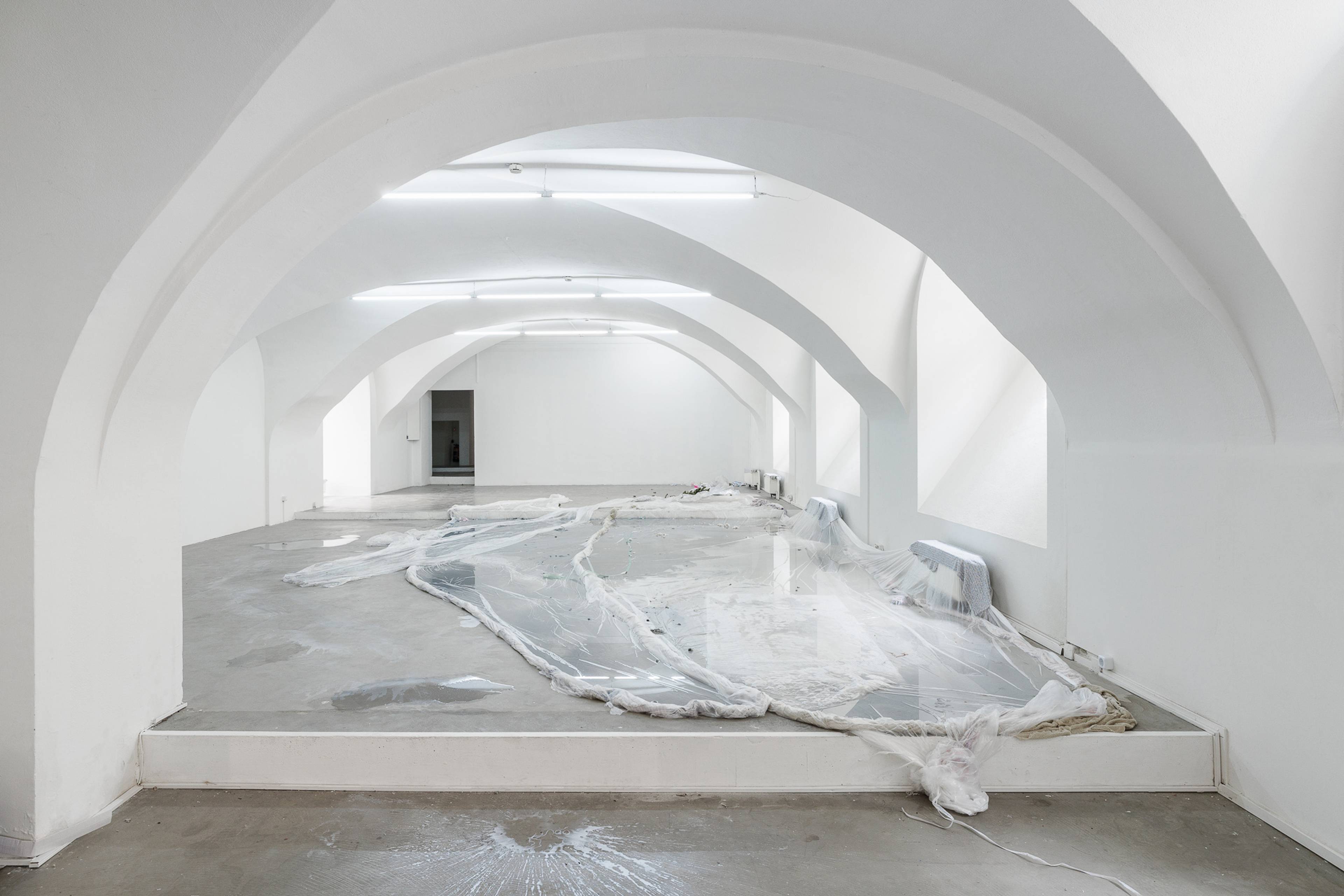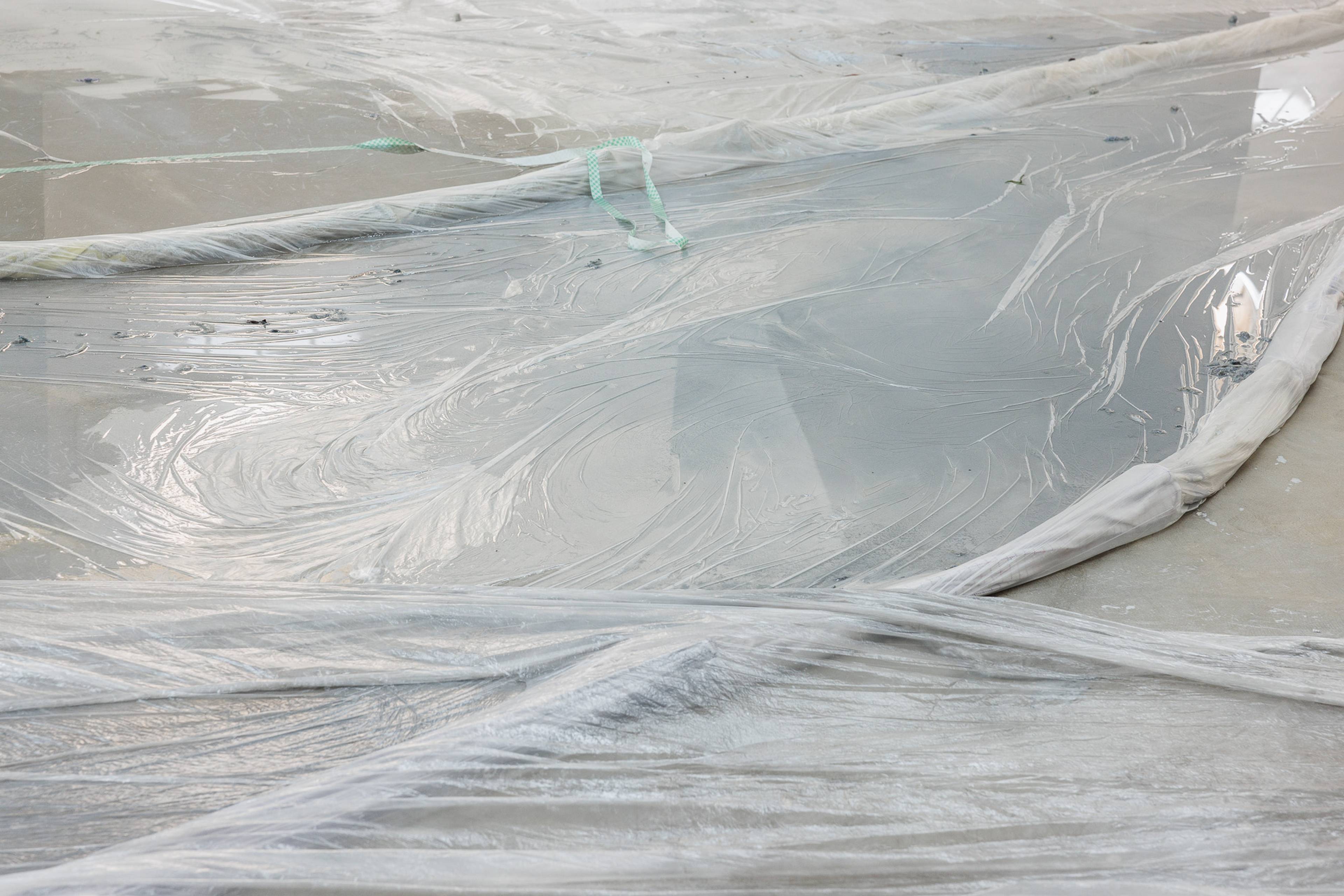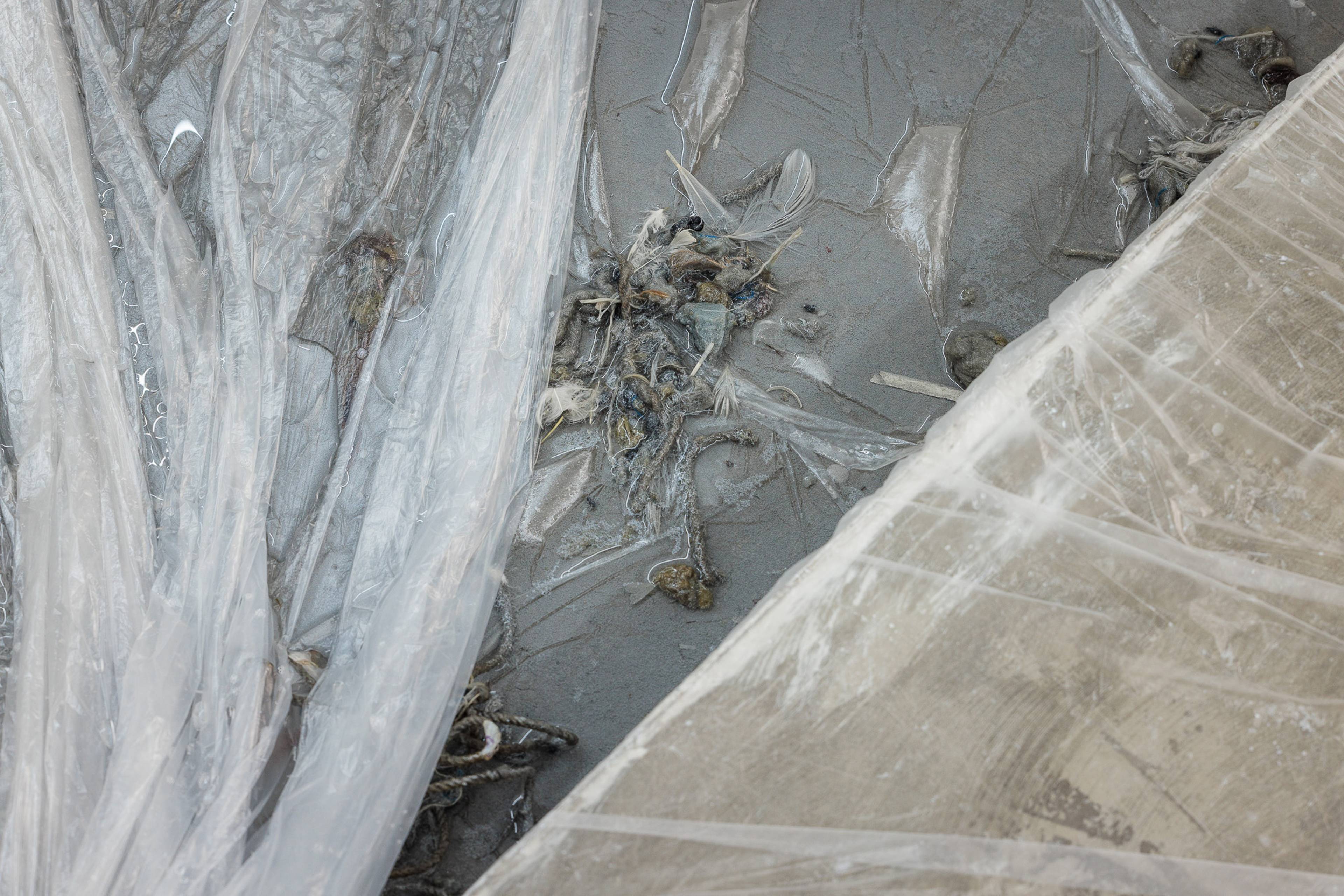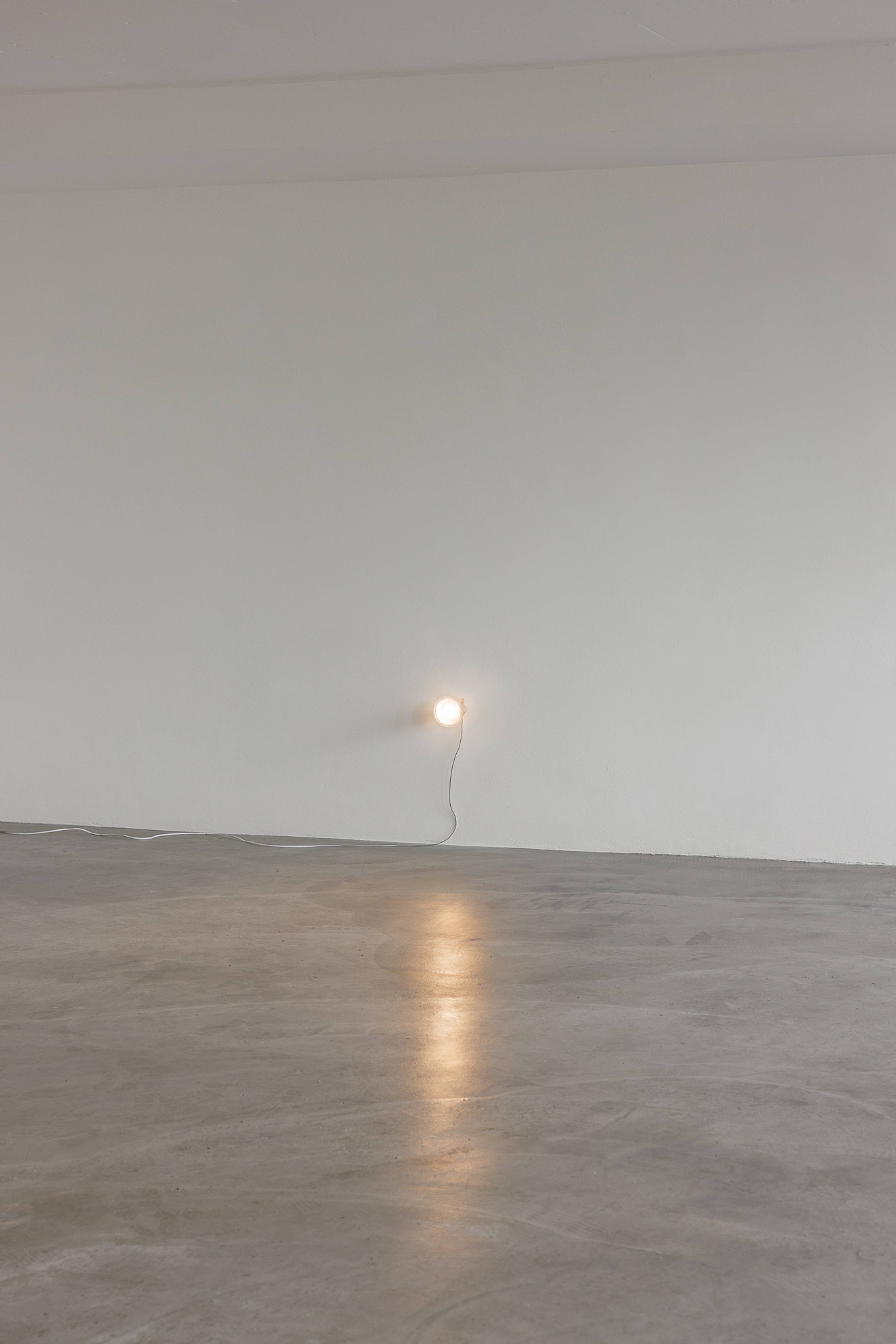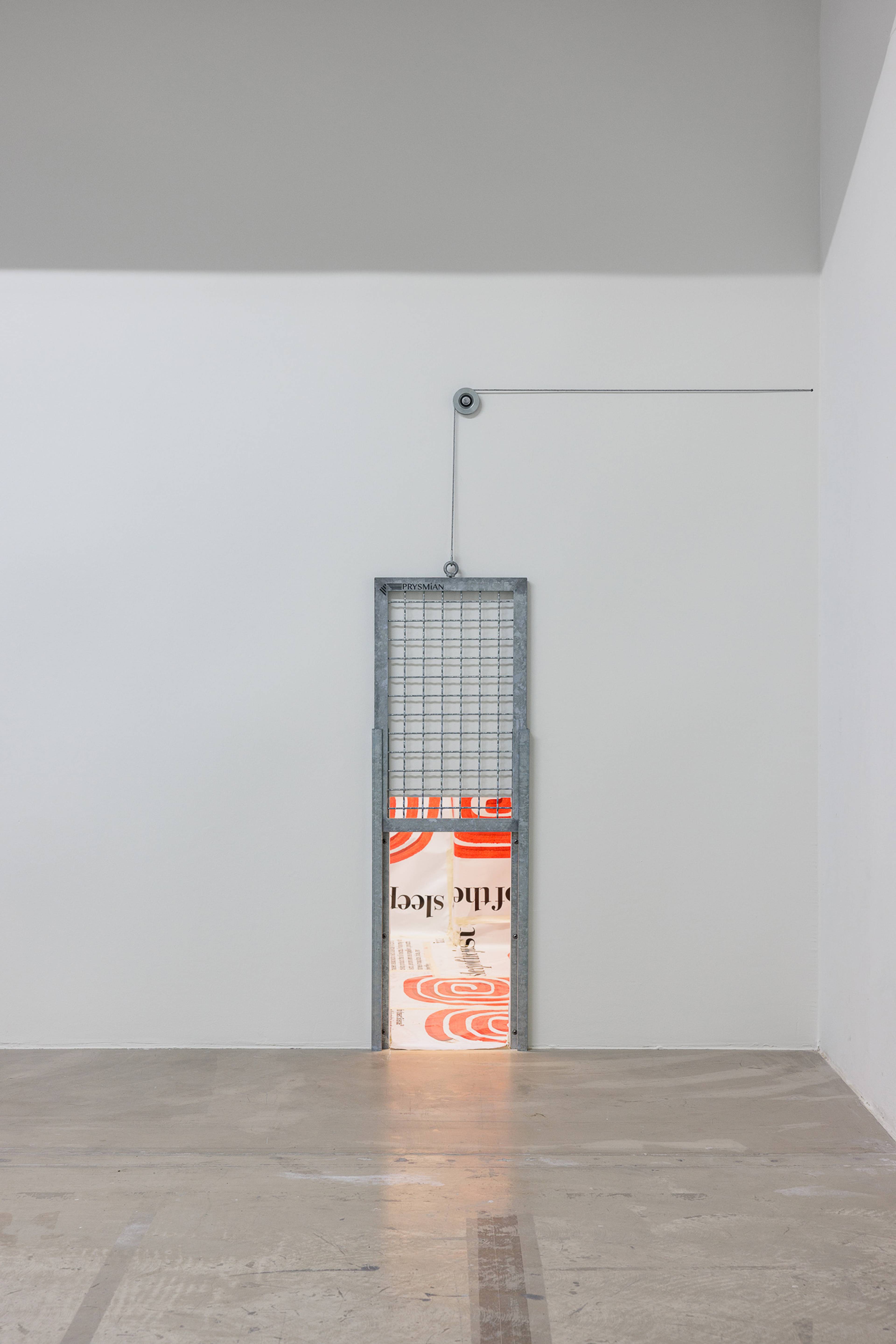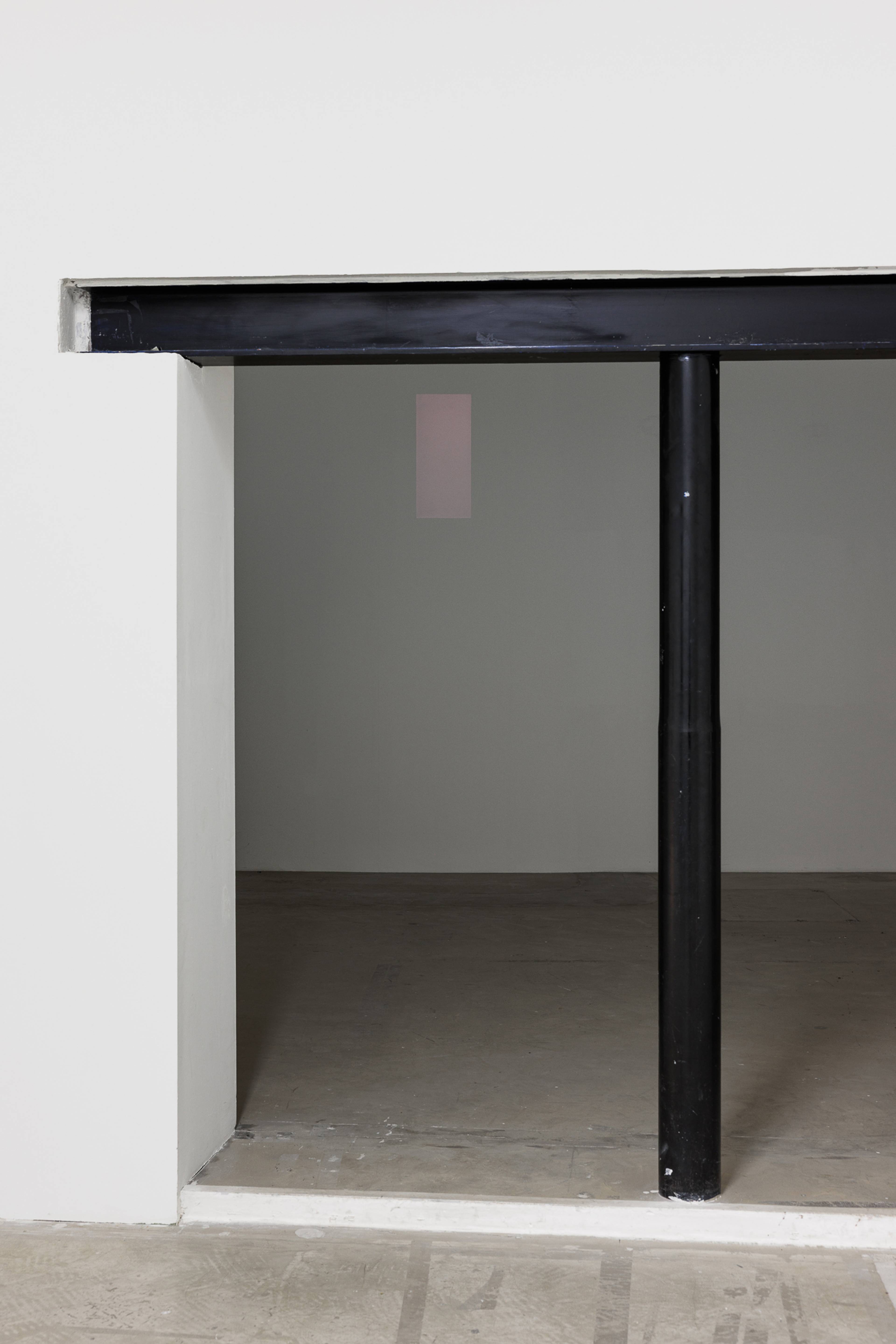Upon entering Jason Dodge’s (*1969) exhibition at the Grazer Kunstverein, one might mistake it for a non-exhibition. The space appears empty, with only a few remnants on the floor, as if the previous show had just been dis-mantled. A lamp on the wall directs the eye to the next room, which looks as if it had been flooded by a burst pipe. Water – a hostile element in any art space – has infiltrated the main gallery. Waterproof foil, bordered by wet floor cloths, covers the ground; the heating is shrouded in transparent sheeting; candy wrappers float in puddles; crumpled, grayish plastic and textiles are scattered everywhere, perhaps laid out to dry.
Dodge’s installation is a carefully choreographed chaos, albeit with cause and effect suspended. It is a mixture of workaday objects, organic debris, fake advertising handouts, and raffle tickets designed by the artist, blurring the distinction between things found and made. Everything is arranged in unexpected alliances, provocative evidence of what strange scenarios might have transpired. Some elements are apparent traces of previous activities; others remain obscure. Small pieces of paper scattered on the floor read livraison de glace (ice delivery), accompanied by an Austrian telephone number. Twigs and petals have incurred on the art space and turn it into a natural-ish habitat. Feathers float in the water; in one corner, dry leaves lie next to dishwasher tabs, toothbrushes, and a ball of string.
This strange, immersive landscape is neither backdrop nor imitation, but a proposal for a radically different form of encounter with art, its institutions, and our relation to both. Things discovered, collected, or abandoned by others are placed in the gallery, but will return to the world they belong to after deinstallation. Visitors can look at them, but also move around and step on things, touch them, perhaps even rearrange them. The setting changes with the presence of an audience, more so than that of the artist himself. Untitled and undated, Dodge’s installation demands our involvement in the present tense, its continuous addition of textures, suggestions, and meanings transcending the expectation of the exhibition as an end-point. What we see might be a leak, the floodwaters receding, or just the start of a deluge.
Beyond this soggy gallery, the atmosphere shifts. In a small corridor, a floor grate covers a cloth emitting the strong, invigorating scent of camphor. The Kunstverein’s janitor closet has been trans-formed into a kind of cage. Equipped with a metal portcullis, we can peer into the small, furtive room, now wall-papered with old advertisements for the ambiguous Center for Insect Science, “dedicated to research to develop prod-ucts that kill insects.” Painted in bright red, the images’ Vertigo-like spirals turn out to be incense coils. Is this space, with its catchy geometric pattern, a trap? The poster signals hostility to the idea of co-living species, but the rest of the gallery is blocked with cleaning equipment, along with a forest of branches and twigs culled by the artist after a recent local storm.
In the Shakespearean sonnet, the volta (Italian for “turn”) introduces a change of thought, argument, or direction just before the final couplet. It’s meant to denature or re-catalyze the preceding text – a new suggestion for reading an earlier stanza, a possibility for transformation. Dodge, who founded and runs the poetry publisher fivehundred places, here brings literal poetics to bear on exhibition-making, by writing through the narrative possibilities materialized in flotsam – whether from the street, the Kunstverein’s storage, or a nearby park. Arrangements that look like chance encounters – dried leaves next to a pillbox, lottery tickets strewn on the floor, reflective shimmers of air and water knotted in milky plastic – create assemblages rich in (or entirely empty of) connotation, as much as a visitor’s random arrival reshapes its atmosphere entirely. Taken as a whole, the exhibition speaks eloquently about our relations with the private worlds of things, turning on the quantum question of whether or not we’re there.
___
Jason Dodge
Grazer Kunstverein, Graz
22 Jun – 24 Aug 2024


